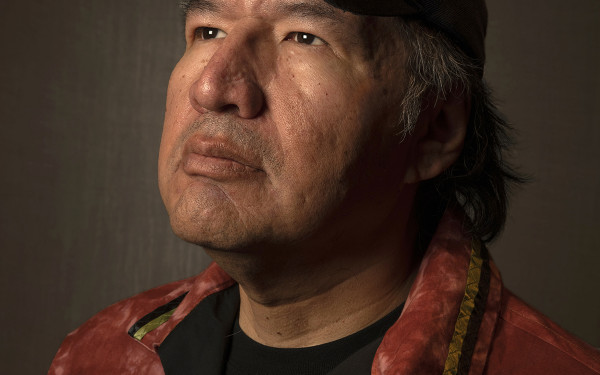Flooding the Phones to End Land Theft in Kanehsatà:ke
CSU Invites Students to Call Local Members of Parliament to Demand Moratorium on Development of Unceded Land
“I just called Justin Trudeau, he’s my MP and also the top MP,” explained Jacob Robitaille, a geography student. “We’re calling local MP offices and leaving messages, getting their secretaries to write stuff down, to stop corporations and multinationals from encroaching on this territory.”
On Tuesday afternoon on the seventh floor of Concordia’s Hall building, the CSU hosted a flood the phones event, inviting students to call or email political agencies and representatives demanding that a short term moratorium be placed on the development of the ancestral lands of the Kanien’kehá:ka of Kanehsatà:ke.
The event was the CSU’s way of supporting the Mohawk community of Kanehsatà:ke, standing in solidarity with Al Harrington. Harrington is a member of the community who began a hunger strike on Oct. 11 to bring attention to this issue.
“Our annual campaign right now is sustainability/climate justice, and although this isn’t exactly related to climate justice on first glance, but when you actually start to think about it, Indigenous rights and Indigenous sovereignty are absolutely related to climate justice which is why the campaigns office organized this call-in,” explained Finance Coordinator Desirée Blizzard.
This particular territorial dispute has been ongoing for hundreds of years. The land was fraudulently stolen, first by the Sulpician Fathers Seminary and then by the municipality of Oka, Quebec, which borders Kanehsatà:ke, and the federal government. The return of this land has been demanded for over 300 years, and was at the core of the 1990 Oka Crisis.
Over time, the people of Kanehsatà:ke exhausted all avenues in an attempt to regain possession of their ancestral land, all to no avail. Tensions finally boiled over in 1990 when the municipality of Oka approved the expansion of a golf course, prompting Mohawk people to set up a blockade to prevent this work.
Police were involved, and one officer was shot and killed in a siege of this blockade, causing conflicts to escalate further. The Oka Crisis lasted 78 days, and involved the deployment of 2500 Canadian troops to the area, costing taxpayers about $200 million. In the end, the project was cancelled and purchased by the federal government to be returned to the Kanien’kehá:ka, which still has not been done.
“I’m here today because the Oka Crisis happened [almost 30] years ago, and these people still have to go on strike, and hunger strikes, fight the government and risk their lives to be autonomous,” said Robitaille.
Recently, developer Grégoire Gollin acquired the land and has been building houses on it without Mohawk consent. However, he has faced pushback from some community members. In July, it was announced that “in the spirit of reconciliation,” the developer would donate 60 hectares of this land to the federal government. This would halt further development, but the Mohawk people would still not control this land.
In protest, Harrington began a hunger strike. His strike began on Oct. 11 and will continue as long as he can hold out, or until the government accepts his demands. He is requesting the government place a short term moratorium on the development of Kanien’kehá:ka homelands and for Prime Minister Trudeau to meet and enter meaningful discussion with the Rotinonhsesha:ka (People of the Longhouse) of Kanehsatà:ke to end the dispute with peaceful resolution.
Until this happens, people like Robitaille will flood the phone lines in hopes of sparking action. Despite a low turnout at the event, it’s organizers recognized its necessity.
“Often it’s about visibility,” explained Blizzard. “The fact that there are people doing it, whether that be 500 or five it’s still the action of coming out and supporting the event, even by making one call.”
For those looking to do their part, there is currently a petition circulating online calling on the Prime Minister to end land fraud in Kanehsatà:ke, which at this time has over 800 signatures.





2_600_375_90_s_c1.jpg)
